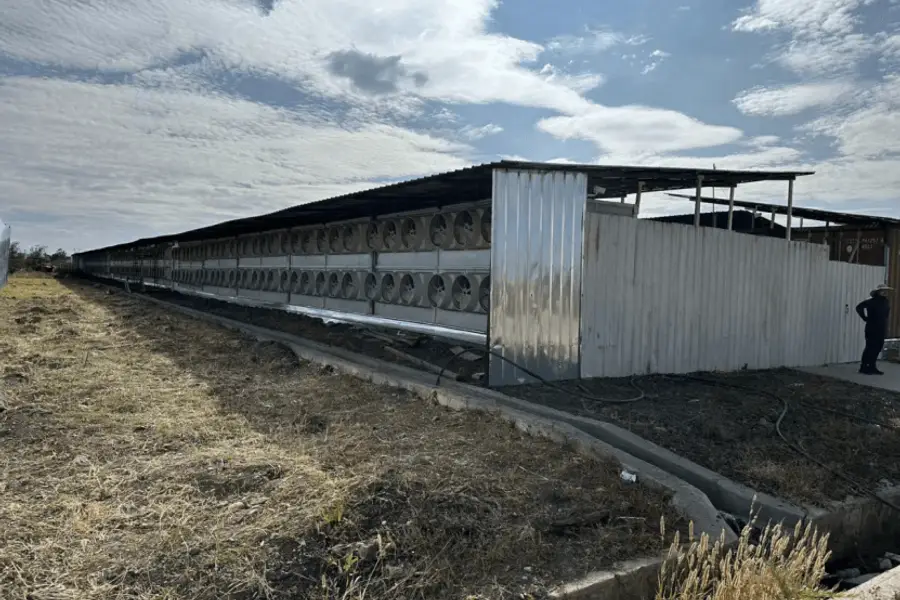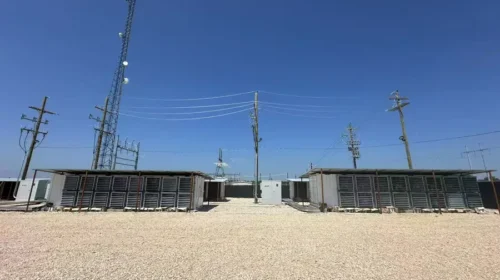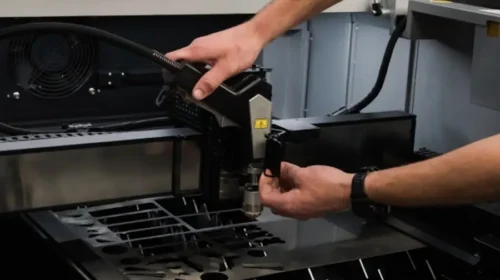BIT Mining or Solai? A company built on speculation speculates again

The crypto mining company will change its name to reflect its new business focus, just five years after transforming from an online lottery ticket seller
Key Takeaways:
- BIT Mining will become Solai from Oct. 20 after shareholders approved the name change, marking a second rebranding
- The move comes as the company’s five-year-old crypto mining business struggles, forcing it to shift its focus to Solana, a blockchain-based network with its own cryptocurrency
By Warren Yang
The recent bitcoin boom is minting lots of new bitcoin miners, which is making life more difficult for everyone due to a limited supply of the cryptocurrency.One of those is BIT Mining Ltd. (BTCM.US), which is embarking on yet another business transformation as life only gets harder in the overheated space.
Last Friday, the company said its shareholders approved a plan to rename itself Solai, and its shares will start trading with a new ticker from Oct. 20. This followed an August announcement about the rebranding for a transformation into a “broader digital assets company focused on next-generation blockchain infrastructure, decentralized finance, and smart contract innovation.”
This marks the second time BIT Mining has taken on a new identity. The company was originally founded as an online lottery ticket seller in 2001 and became a crypto miner 20 years later. The foray into digital assets was an opportunistic move that made some sense, as virtual currencies seemed set to be the next big thing. China was also the world’s largest crypto mining hub at that time.
But BIT Mining’s big crypto bet quickly went south. First, China shook the crypto world by banning mining within its borders in 2021, the same year BIT Mining made its transition. Then, a prolonged crypto winter followed as prices crashed. Now, virtual currencies are all the rage again, with bitcoin prices hitting records, intensifying competition for its limited supply. Reflecting these challenges, BIT Mining’s revenue began declining each year from 2022.
So, the company’s latest move to tweak its business model seems rational to some extent. The change this time isn’t as radical as its first transformation. And if anything, BIT Mining, which owns data centers and crypto mining machines, can rather easily repurpose those resources for its new operations, as they are also in the cryptocurrency realm.
BIT Mining’s new Solai name conveniently combines its new brand that pins its hopes on Solana, a blockchain-based crypto network with its own cryptocurrency of the same name, and artificial intelligence (AI). The company adds it won’t necessarily be limited to Solana, and will expand into other platforms down the road.
Transition to Solana
Solana is gaining traction a bitcoin alternative that offers high speeds and low transaction costs for various applications, from gaming to decentralized finance. Its namesake native currency has gained about 42% in value in the past year, although that’s less than nearly 80% appreciation for bitcoin prices during that time.
“Our transition from BIT Mining to Solai marks a strategic shift from crypto mining to a technology enterprise at the intersection of artificial intelligence and blockchain,” company Chairman Bo Yu said in the Friday announcement. “We see the next wave of innovation emerging where intelligent systems connect with decentralized infrastructure — enabling faster, safer, and more efficient exchange of information and value.”
BIT Mining first publicly disclosed plans to switch its focus to Solana back in July. As part of this move, it will build a solana treasury, both through fresh acquisitions and conversion of its existing crypto assets. And to finance solana purchases, BIT Mining plans to raise $200 million to $300 million in phases. That could be challenging, since the company currently has a market value of just $50 million. But external fundraising is inevitable as the company only had only $1.8 million in cash and cash equivalents at the end of last year.
In July, BIT Mining also completed a two-phase acquisition of data centers in Ethiopia, although the transaction started before it conceived its Solana plans.
Since then, the company has wasted no time getting to work. In early August, it set up its first solana validator, a computer node that participates in a blockchain process to verify transactions. At that time, the company also bought about 27,000 solana tokens for about $4.9 million.
Later in the month, BIT Mining launched dolai, a U.S. dollar-backed stablecoin on the Solana network, through a partnership with a firm called Brale, which helped to ensure compliance with U.S. regulations. Dolai can be used for transactions between merchants and consumers, as well as institutional and cross-border payments. What’s special about dolai, according to BIT Mining, is that it’s designed to connect AI agents that enable autonomous machine-to-machine transactions.
Then, last month, BIT Mining said it bought additional solana to expand its treasury of the cryptocurrency to a total of more than 44,000 coins, which are worth about $8.5 million based on the currency’s current price.
All this sounds good, but at this point, it’s not so clear how well this Solana endeavor will turn out, or how exactly BIT Mining will make money from it.
In the disclosure of its latest solana purchase, BIT Mining said it will utilize its growing trove of the crypto asset, along with its validator operations, to “capture both the financial and strategic upside of Solana’s rapidly expanding on-chain economy.” So, it sounds like the company is banking on valuation gains on its solana holdings and fees from its validating work, which are paid in the digital currency.
But like with any cryptocurrency, solana prices can swing wildly, exposing the company to potential losses. Also, there’s no certainty that a solana validator will make profits, as it needs to pay a fee to become eligible to vote on the validity of a transaction, a crucial part of the verification process, on top of high costs to acquire and operate necessary machines.
BIT Mining shares surged when it initially announced its Solana plans, but have since given back most of those gains. They trade at a modest price-to-sales (P/S) ratio of 1.6, roughly in line with 1.7 for BitFuFu (FUFU.US), which is building its own portfolio of crypto assets, in addition to providing mining services for others. The ratio for Canaan Inc. (CAN.US), which both makes crypto mining machines and does its own mining, is even lower at 1.2.
These valuations suggest that investors in general are cautious on crypto-related companies with Chinese backgrounds despite all the industry hype. BIT Mining’s Solana move may help it stand out in the pack, but it may be a while before it has something to show for that, if ever. The stakes are high for the company. The third time may be a charm for many things in life, but so many attempts to overhaul a business may also start to worry increasingly impatient investors.
To subscribe to Bamboo Works weekly free newsletter, click here






